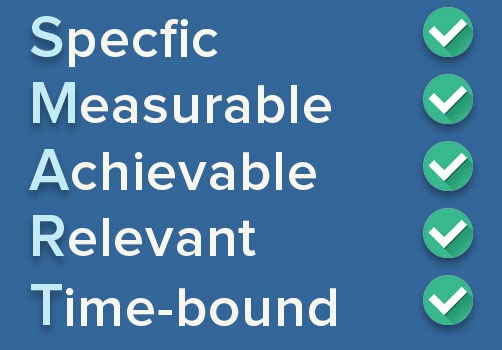- Goals drive our training and separate us from the exercisers because they give our physical activity a purpose. Having a weak goal is better than having no goal, but there is a way to create goals to optimize their usefulness in your training. The most effective goals are SMART goals – specific, measurable, attainable, realistic, and timely.
- T- Time limited: Goals and Objectives are broken down with expected time frame behavior change will occur in. We can apply this S.M.A.R.T method to the goals and objectives that we want to write for parent training. I present a set of SMART goals and objectives at the beginning of parent training.
- S.m.a.r.t. Goal Settingdialectical Behavioral Training Techniques
- S.m.a.r.t Goal Setting Dialectical Behavioral Training Reliaslearning
- S.m.a.r.t Goal Setting Dialectical Behavioral Training Certification
Meditation goal. The toughest goal that I have set is to get into the habit of meditating two times a day for 30 minutes each. The style of meditation that I do is called Primordial Sound.
Post by Jon Elhardt
Goal setting is one of the most crucial steps to finding success, both in your career and in your personal life. It’s also an essential sales habit for success. Without goals you are like a rudderless boat afloat at sea hoping to arrive at your destination. By setting goals, you will both consciously and subconsciously head in the right direction.
Periodically, make sure you are on the right track by asking yourself: “Are my actions in line with my goals?”
If they are great job! If they aren’t, realign yourself and get back on track.
The act of goal setting activates determination, drive and focus. In turn, you will modify your behavior and the way you approach life in order to align with the goals that you have set out. One of the factors that leads to stress is feeling out of control. Goals enable you to control the direction of change.



USING GOALS TO MOTIVATE A SALES TEAM
I value goals as a way to motivate and guide success. During their first week of training, each new sales person on my team creates a list of five personal goals and five professional goals. I also encourage a mix of both short- and long-term goals. This helps keep the entire team engaged. I also ask the sales person to associate various pictures with their goals. These visual aids subconsciously remind the team of their goals and are hung in their cube for daily inspiration.
Each goal adheres to the S.M.A.R.T. mnemonic goal structure often used in project management, employee performance management and personal management. Sales professionals can benefit from setting S.M.A.R.T. goals that will help them achieve success. This method helps each individual to visualize their success and work toward the goal in a manageable way. Here’s an example of how I’d recommend writing a few goals:
SPECIFIC
A goal should be specific by defining who, what, why or which.
“I want to be a better sales person” is pretty general goal and hard to gauge success.

Try a goal that is more specific, such as “I want to be the No. 1 sales person on my team.”
MEASURABLE
A goal should be measurable. How much? How many? A vague goal, such as “I want to make more money,” is not a measurable goal because it doesn’t define what “more” means.
Try something like, “I want to increase my income 20% over the previous year.”
A good goal also will allow you to quickly and easily know when you have achieved your goal.
S.m.a.r.t. Goal Settingdialectical Behavioral Training Techniques
ATTAINABLE
A goal should be attainable, not extreme.
Goals such as “I want to triple my salary in six months” or “I want to read 20 business books by the end of the week” are not very attainable goals for most people.
Choose a goal that is attainable, such as “I want to increase my salary during my next review by receiving a bonus.”
RELEVANT

S.m.a.r.t Goal Setting Dialectical Behavioral Training Reliaslearning
A goal should be relevant to your work or lifestyle. Although creative, irrelevant and unrealistic goals defeat the purpose of goal setting.
“I want to own my own island” or “I want to fly a spaceship” or “I want a pet lion” are not very realistic or relevant goals for sales professionals.
Make sure your goals are realistic and relevant to the rest of your goals.
TIMELY
A goal should be time bound. By when do you want to complete your goal? In one week? In six months? Over 10 years? Choose a timeframe that will allow you to attain your goal given your resources and available time.
Also don’t be discouraged if you don’t hit your goal in the timeframe you first lay out. Simply move the date back and stay the course.
Goal setting is an excellent exercise that anyone regardless of age or occupation should do. Try it and you may surprise yourself with what you can achieve by creating a goal, writing it down and keeping your eye on the prize.
S.m.a.r.t Goal Setting Dialectical Behavioral Training Certification
Jon Elhardt joined Acquirent in January of 2013 as the Sales Manager for Acquirent’s Constellation Energy account. He was tasked with creating a new team at Acquirent for an existing client that was to be highly transactional with a renewed focus on core sales fundamentals. Jon lives in the Edgewater neighborhood and enjoys traveling, music, spending time with his wife and son, and taking advantage of everything Chicago has to offer.[/fusion_text][/two_third][/fullwidth]
